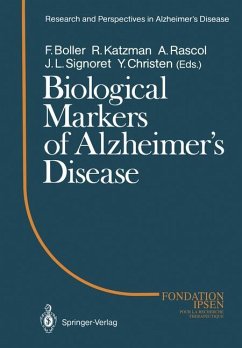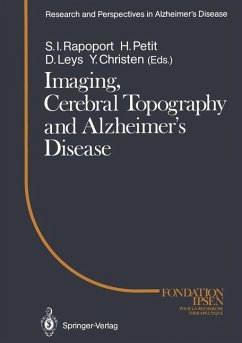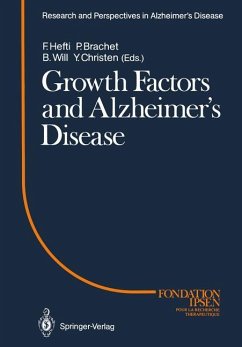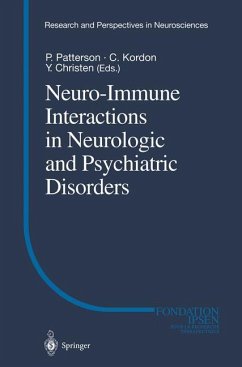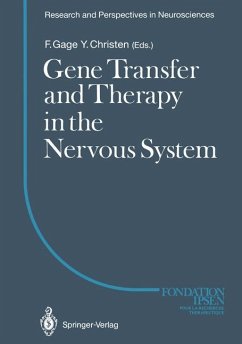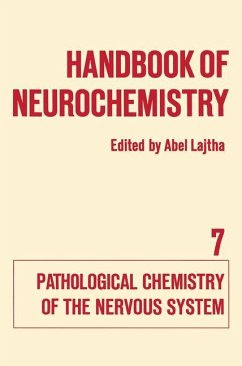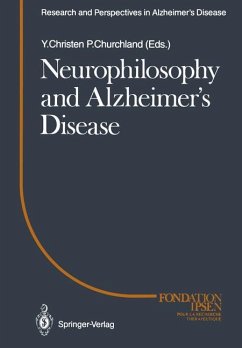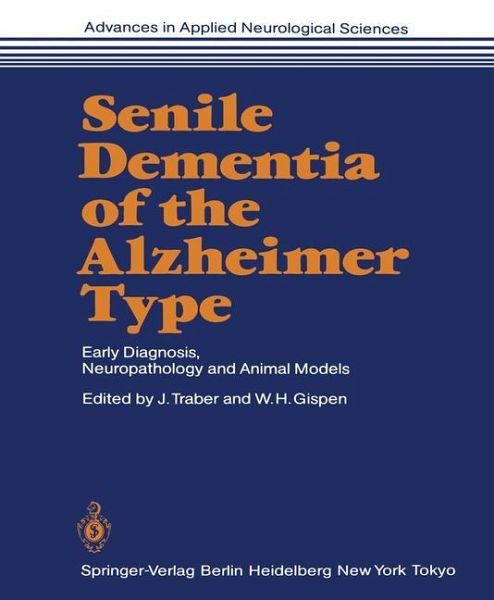
Senile Dementia of the Alzheimer Type
Early Diagnosis, Neuropathology and Animal Models
Herausgegeben von Traber, Jörg; Gispen, Willem H.
Versandkostenfrei!
Versandfertig in 1-2 Wochen
77,99 €
inkl. MwSt.

PAYBACK Punkte
39 °P sammeln!
Society is showing increasing concern for disorders related to aging that lead to a loss of brain function. In view of the enormous proportion of elderly people in our society today, brain aging is more than ever subject to challenge to us all, not only politicians and health authorities, but every individual who is confronted with the difficult situation of watching the mental powers of apparently healthy elderly friends, neighbours, or relatives fail, often with alarming rapidity. This challenge is directed especially toward us scientists. As one of our colleagues succinctly put it 2 years a...
Society is showing increasing concern for disorders related to aging that lead to a loss of brain function. In view of the enormous proportion of elderly people in our society today, brain aging is more than ever subject to challenge to us all, not only politicians and health authorities, but every individual who is confronted with the difficult situation of watching the mental powers of apparently healthy elderly friends, neighbours, or relatives fail, often with alarming rapidity. This challenge is directed especially toward us scientists. As one of our colleagues succinctly put it 2 years ago at the close of our First International Symposium on Brain Aging: "Do something. We are not dealing here with just another disease; we are concerned with human dignity. " More than any statistics, these words convinced me that Tropon's decision to leave the field of classic CNS pharmacology and move into the field of gerontopsychopharmacology was the right one, even though we knew that success would be uncertain and that, even if it finally comes it will be many years hence. At this point, let me add a personal comment: each one of us is judged by his or her own success. We live in a competitive society where success counts. This applies not only to the businessman, but also to the scientist, in particular, to those in industry.





